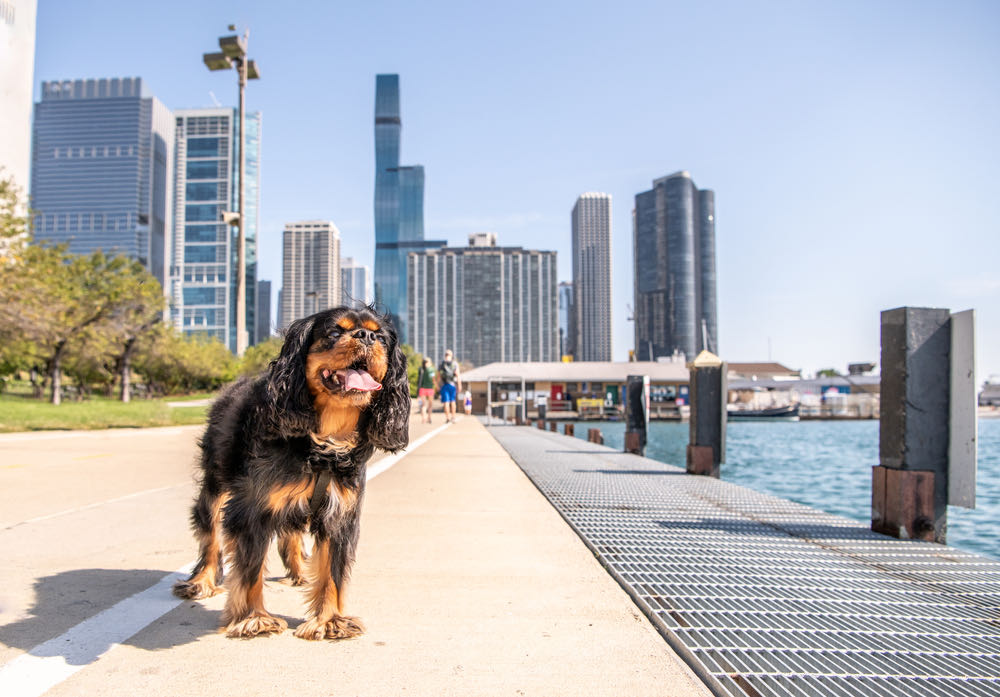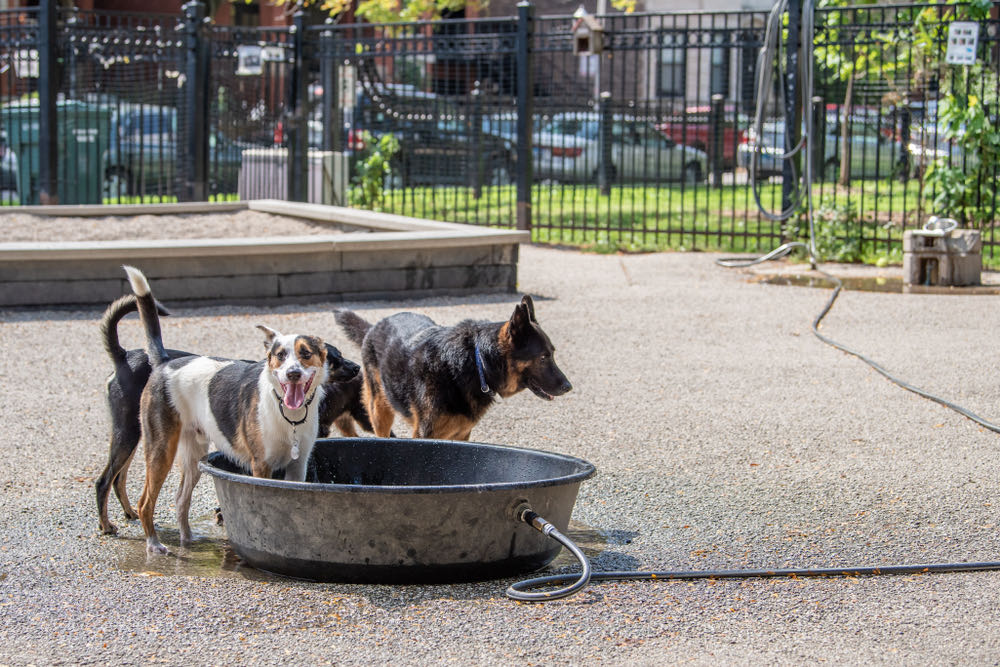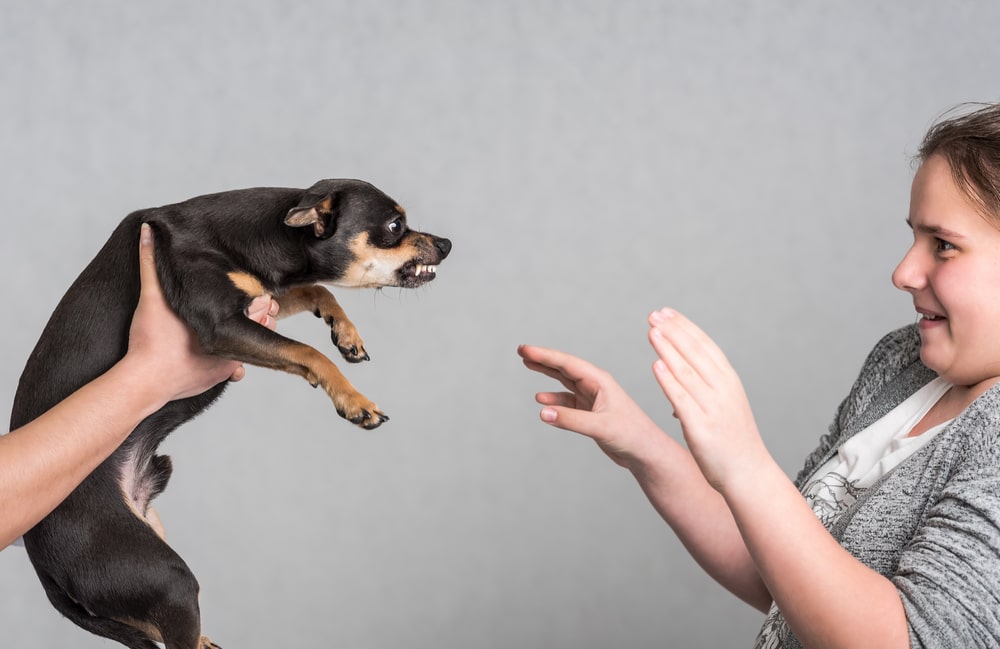
Chicago is a big city full of busy streets, parks, and places to explore. But if you have a dog, you might wonder: how friendly is the city for pets?
The good news is that the Windy City has plenty of dog-friendly spaces, restaurants, and services. There are parks where dogs can run, places where they can sit with you while you eat, and even special events just for dog owners. If you live here or plan to visit with your pup, knowing where dogs are welcome and how to get around can help you enjoy everything the city has to offer.
Overview of Chicago Pet-Friendly Areas
Chicago has a lot of great spots for dogs and their owners. One of the best places is Montrose Dog Beach, where dogs can run off-leash and play in the sand and water. It’s a popular spot for locals who want to let their pets socialize and get some exercise.
There are other dog parks in Chicago with fenced-off areas. Some are small neighborhood parks, while others, like Wiggly Field or Jackson Bark, are larger and offer space for dogs to run, climb, and play. These parks make it easy for owners to meet other dog lovers and for pets to interact safely.
Another nice area to walk your dog is the Riverwalk, where many restaurants allow dogs to sit with their owners on an outdoor dog-friendly patio. They may also offer a puppy patio menu.
Both you and your furry friend can have a great time at Chicago’s dog-friendly beaches. There are also several options for dog-friendly hotels. Some dog-friendly restaurants may also offer breathtaking views of Lake Michigan. Speaking of the water, during summer months, you can also take your pet to an off-leash dog beach or a dog-friendly boat tour.
Chicago Dog Laws and Safety
Even though Chicago is friendly toward dogs, there are rules pet owners must follow.
Leash Laws
One of the biggest is the leash law. Dogs must be on a leash in all public places unless they are in designated off-leash areas like a dog park or Montrose Dog Beach. This helps prevent accidents and keeps everyone safe.
Keeping dogs leashed ensures that they do not run into traffic, approach unfamiliar people or animals, or disrupt public spaces. In crowded areas like outdoor markets or sidewalks, leash laws help prevent chaos and keep both pets and pedestrians comfortable.
Licensing and Vaccinations
In Chicago, dog owners must ensure their pets have a city license and a rabies vaccination once they reach four months of age. The license must be renewed every year to remain valid, and authorities expect owners to follow these rules while keeping their shots up to date.
These rules are in place to make sure pets stay healthy and safe. Rabies vaccinations are crucial because they protect pets from the deadly disease that can spread between animals and humans. The license requirement also helps authorities track lost pets more efficiently, allowing a higher chance of a safe return if a dog goes missing.
Landlord Restrictions
While Chicago does not ban specific dog breeds, some landlords or apartment buildings have their own restrictions. If you’re moving into a new place, it’s a good idea to check their pet policy before signing a lease. Many landlords set weight limits or prohibit certain breeds due to insurance concerns, so confirming the rules beforehand prevents misunderstandings.
Additionally, some buildings require pet deposits or monthly fees for tenants who own dogs. Reviewing these policies can help owners plan financially and avoid unexpected issues when finding a new home.
Other Chicago Dog Laws
Chicago also has laws regarding excessive barking and pet waste removal. Owners are responsible for cleaning up after their dogs in all public areas, including sidewalks, parks, and apartment courtyards. Failing to do so can result in fines in the range of $50 to $500.
Similarly, excessive barking that disturbs neighbors can lead to complaints and possible penalties. Being mindful of these rules ensures that dogs and their owners remain welcome in communities and shared spaces.

Amenities and Services For Dogs
Chicago has many businesses that welcome dogs, making life easier for pet owners. Whether you’re looking for parks, restaurants, or stores that welcome pets, Chicago has several options to explore.
Pet-Friendly Restaurants, Cafes, and Stores In Chicago
Many restaurants in Chicago let dogs sit on outdoor patios with their pet parents. Places like Big Star in Wicker Park and Parson’s Chicken & Fish even provide water bowls and treats for visiting pups. Dining out with your furry friend is easier here than in many cities, thanks to the number of restaurants and cafes that allow pets.
There are also stores that welcome dogs. Some pet boutiques encourage customers to bring their dogs while shopping, and larger stores like Home Depot allow dogs inside. It’s always good to check store policies before going, but Chicago has many options for shopping with a pet.
Dog-Friendly Public Transportation and Travel Tips
If you need to get around the city with your dog, Chicago’s public transportation system has some options. Small dogs are allowed on buses and trains if they are in a carrier. This makes it possible for pet owners to travel across the city without using a car.
For larger dogs, rideshare services like Uber and Lyft sometimes allow pets, but it depends on the driver. It’s a good idea to message the driver before the ride to make sure they allow dogs. Some taxis also accept dogs, especially if they are calm and on a leash.
Walking is a great way to explore Chicago with a dog. Many neighborhoods, like Lincoln Park and Wicker Park, have wide sidewalks, making them good places for dog owners.
Local Dog Community and Events
Chicago has a strong community of dog lovers, and there are plenty of ways to meet other pet owners to socialize with their dogs. The weather in Chicago does get cold in the winter, so many of the outdoor events are scheduled during summer time.
Dog Events and Meetups In Chicago
Throughout the year, Chicago hosts dog-friendly events where owners can bring their pets to play and socialize. Bark in the Park is one of the biggest dog festivals, with vendors, activities, and social spaces for dogs and their owners.
There are also breed-specific meetups where owners of small dogs, large dogs, or specific breeds can connect. These gatherings offer a fun way to make new friends and allow dogs to interact with others in a safe environment.
Joining Local Dog Clubs and Online Communities
Chicago’s dog community isn’t just in person, it’s active online too. Many social media groups help pet owners find meetups, share advice, and talk about pet-related news. These online groups are great for learning about local veterinarians, dog trainers, and upcoming events.
There are also neighborhood dog clubs that organize walks, training sessions, and even volunteer opportunities for dog owners. Joining one can be a great way to stay connected with the pet community and learn from other dog owners.
How Can Chicago Become More Dog-Friendly?
Chicago has made efforts to welcome dogs, but there are still ways the city can improve. One of the biggest challenges is access to open spaces where dogs can roam safely. While dog parks exist, they are often crowded, and not every neighborhood has one nearby. More fenced-in areas with grassy terrain would allow dogs to run freely without worry.
Businesses can also do more to accommodate pet owners. The city could use more restaurants and cafes that have patios with designated dog-friendly seating, water bowls, and special menus for furry companions. Some stores already welcome dogs inside, but a city-wide push for more pet-friendly policies would be great.
Educating the public about responsible pet ownership is another step toward making Chicago more dog-friendly. Encouraging people to clean up after their dogs and ensuring pets are properly socialized would create a more welcoming atmosphere for everyone.
What Happens in the Aftermath of a Dog Bite Incident?
A dog bite incident is difficult for both the person who is bitten and the owner of the dog. Each person faces challenges that can be emotional, physical, and legal.
For the person who was bitten, the first step is getting medical help. Even a small wound can become infected if it is not cleaned properly. Deeper injuries may need stitches or surgery. A bite can also cause fear and stress. Some people worry about scars or how the injury will affect their daily life. If the bite is serious, the person may need to report it to local officials and deal with insurance or legal matters.
For the owner of the dog, the experience can also be stressful. They may feel guilt or confusion, especially if their pet has never acted aggressively before. They may have to provide proof that the dog has been vaccinated. In some cases, officials may require the dog to be kept away from others for a period of time.
If the injury is serious, the owner may face legal consequences, which could include fines, restrictions on their pet, civil damages, impound fees, and potential criminal penalties depending on the severity of the incident. The amount of fines depends on many factors. it can range from as low as $25 for a public safety fine to several thousand dollars in cases involving serious injury or fatality.
Both the person bitten and the owner of the dog may carry the effects of the incident for a long time. Some people become afraid of dogs, while owners may feel upset about their pet’s future. Some situations lead to court cases, but others can be resolved with an apology and help with medical costs. No matter what happens, these incidents remind everyone how important it is to be responsible for pets and be aware of safety in public spaces.

How Can a Dog Attack Attorney Help?
A dog bite incident can be complicated and stressful for both the person who was bitten and the owner of the dog. Each side faces medical, financial, and legal concerns that require careful attention. An attorney can help both parties understand their rights, navigate legal procedures, and work toward a fair outcome.
For the person who was bitten, an attorney is essential for seeking justice and compensation. Medical treatment can be costly, and injuries may lead to missed work, emotional trauma, and ongoing health issues. An attorney can help build a case, gather evidence, and prove liability.
If the bite happened due to negligence, such as an unleashed or aggressive dog, legal action may be necessary to recover damages. A lawyer can negotiate with insurance companies and fight for a fair settlement. Many victims are unsure of their legal options, but an experienced dog bite settlement lawyer in Chicago can ensure they receive the support they deserve.
The owner of the dog also benefits from legal guidance. Sometimes, a dog bite happens unexpectedly, even when the owner is responsible. An attorney can help defend against unfair claims, prove the owner took proper precautions, and ensure the case is handled fairly. If the victim exaggerated the injury or contributed to the incident, legal representation is necessary to prevent excessive penalties. A lawyer can also provide advice on local laws, helping owners understand any requirements placed on their pet, such as behavioral evaluations or restrictions.
Not all dog bite cases end up in court. In many situations, a lawyer can help both sides reach an agreement without a lengthy legal battle. Negotiating a settlement allows victims to receive compensation while allowing owners to resolve the matter quickly. Attorneys can mediate discussions, draft agreements, and make sure the process is fair. Whether representing the victim or the owner, an attorney plays an important role in finding solutions and protecting their client’s rights.
Bitten by a Dog? Let Us Help You
If you or someone you know has been affected by a dog bite incident, our experienced legal team is here to help. Whether you are seeking compensation or defending your pet, we will guide you through every step of the legal process. As our team takes care of the legal aspects of the case, you can focus on healing and moving forward. Contact us today for a free consultation and let us fight for the best outcome in your case.


